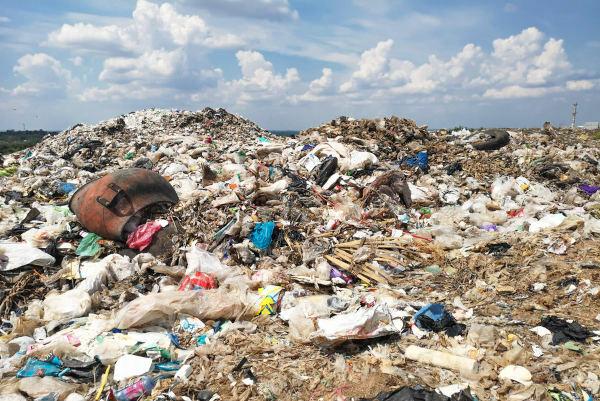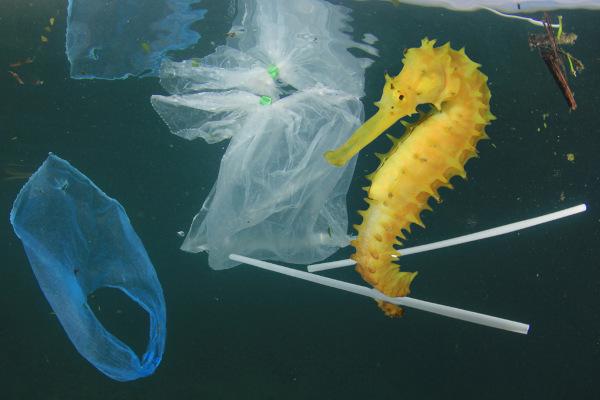Pollution is a term with different definitions in the literature, however, in general, we can consider pollution as harmful modification of the environment, modification that affects different forms of life, including beings humans. Pollution is often related to human action and activities, however, natural events such as volcanism, can also provoke it.
There are different types of pollution, such as atmospheric, water, soil, noise and visual. Pollution can be quite harmful to living beings, including humans, who can develop health problems as a result of environmental degradation.
Read more: Anthropogenic actions in the environment
Pollution Summary
Pollution is a degradation of the environment that has a harmful effect on the environment and on the living beings that thrive there.
Pollution can be caused by humans, but also due to natural processes.
There are different types of pollution, such as atmospheric, water, soil, noise and visual.
Pollution can cause disease, reduced biodiversity and climate change.
Small actions, such as reducing the use of cars and recycling garbage, are measures that can reduce environmental pollution.
Educating the population about the importance of taking care of the environment is essential so that the problem of pollution is not aggravated.
Video lesson on pollution
What is pollution?
Law No. 6,938, of August 31, 1981, provides for the National Environmental Policy, its purposes and mechanisms for formulation and application, and other measures. According to this law, it is understood by:
III - pollution, the degradation of environmental quality resulting from activities that directly or indirectly:
a) harm the health, safety and well-being of the population;
b) create adverse conditions for social and economic activities;
c) adversely affect the biota;
d) affect the aesthetic or sanitary conditions of the environment;
e) release materials or energy in disagreement with established environmental standards.
Pollution therefore refers to a environmental modification that adversely affects human beings and other forms of life found in that location. Pollution is usually caused by humans and their activities. O human being causes pollution environmental when their industries, for example, release pollutants into the air, when fossil fuels are burned, when they carry out fires, when they use pesticides at agriculture, among several other situations.
It is noteworthy, however, that pollution is not always triggered by humanity. You volcanoes, for example, are a natural source of pollution, and, when they erupt, are responsible for releasing a large amount of gases.
Read too: Industrial Revolution - understand how this process aggravated the problem of pollution in the world
Types of pollution
there are different types of pollution, being some:
-
Atmospheric pollution: consists of the release of substances that affect the composition of the air. Burning fossil fuels, for example, can lead to the release of various substances into the air. Particulate materials, carbon dioxide and hatesulfur oxide are some of the known air pollutants.
Air pollution can trigger serious problems for our body, increasing the incidence of problems such as asthma, lung cancer and chronic obstructive pulmonary disease. According to the WHO, air pollution kills around seven million people worldwide each year.
-
water pollution: it is caused by substances that come into contact with the aquatic environment, causing modifications. Untreated sewage discharge, oil spill and release of Mercury at Water are some of the situations that cause water pollution.
Water pollution can cause the death of organisms that live there, cause illness in human beings that feed on these living beings, and even cause economic impacts, harming fishing and tourism, by example.
Ground pollution: affects the surface layer of the earth's crust. Pesticides used in agriculture are an example of substances that can cause this type of pollution. Improper disposal of garbage, such as garbage deposited in landfills, can also cause soil pollution.

Noise pollution: characterized by excessive noise. These noises can be caused by traffic, machinery, musical shows and parties, for example. This excess can trigger stress, difficulty concentrating, headaches, difficulty sleeping and hearing problems.
-
Visual pollution: characterized by excessive visual communication in one place. The excess of plates, of billboards, banners and advertisements can cause visual pollution. This type of pollution affects the visual aspect of cities, overshadowing, for example, the historical beauties of the place.
Furthermore, it can promote negative impacts on human beings. In addition to the visual discomfort caused by excess information, the large amount of plates and billboards, for example, can be responsible for traffic accidents due to the fact that they are distracting conductors.
Read more: Depollution of rivers - it is possible, but it is necessary to invest in structure and awareness campaigns
Video lesson on soil pollution
consequences of pollution
Pollution is responsible for causing various damages to ecosystems, causing changes that directly affect all living beings that develop there. Among some of the consequences of pollution, we can mention:
Reduction of biodiversity;
Global warming and climate changes;
eutrophication of water bodies;
Development of a range of diseases in humans and other animals;
Acid rain;
Negative impact on the economy of a region.

How to reduce environmental pollution?
It is very important to raise awareness of the problems caused by pollution. When we see how pollution affects us, it becomes easier for us to understand the need for urgent measures to curb this problem. Simple everyday attitudes can be responsible for curbing pollution, which is responsible for the death of humans and other animals every year.
Among the measures we can take to reduce pollution, the following stand out:
Reduce car use;
Recycle, reuse and reuse whenever possible;
Rethink our consumption habits;
Separate the garbage and do not dispose of it in inappropriate places;
do not perform burned;
Teach others about combating environmental pollution.
By Vanessa Sardinha dos Santos
Biology teacher
